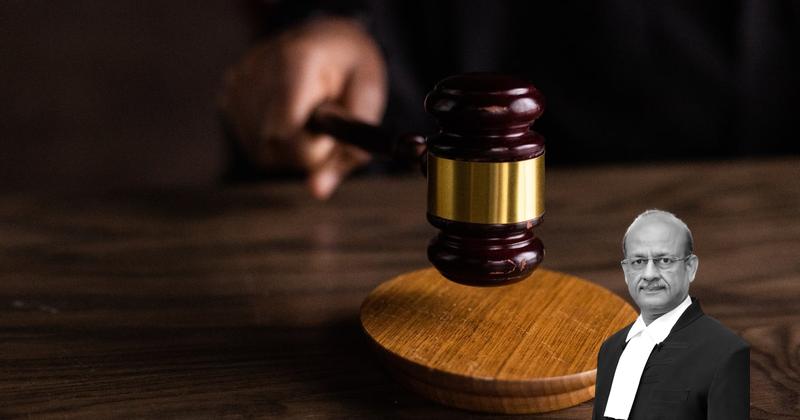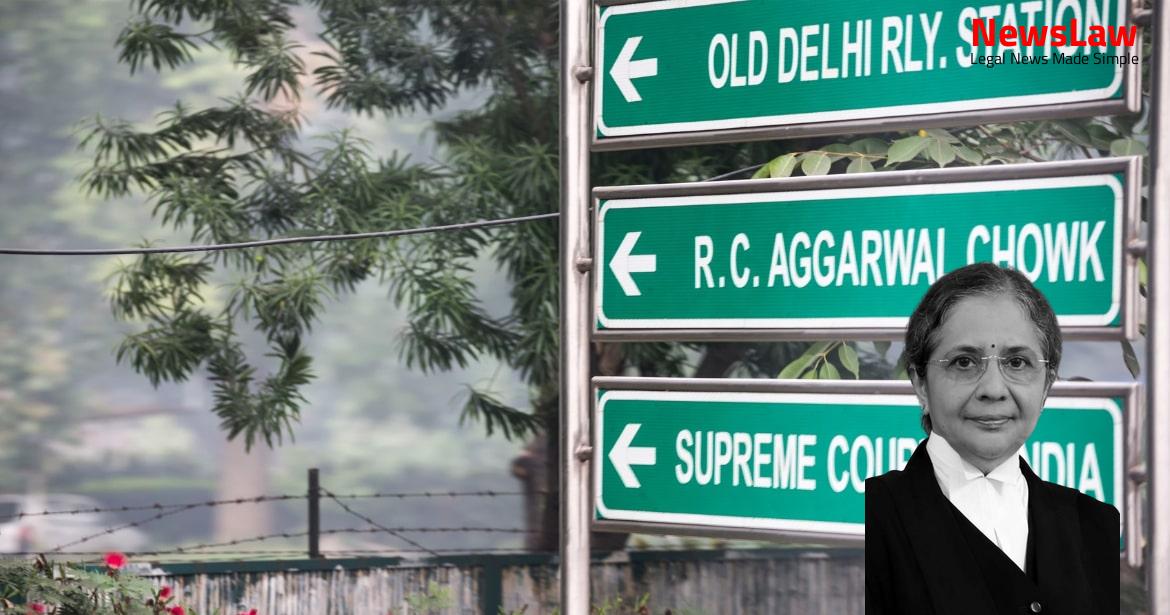Discover the critical role of judicial scrutiny in bail orders through a recent legal case. This summary delves into the significance of detailed legal analysis by the court, emphasizing the need for thorough consideration of facts, circumstances, and legal provisions. Upholding rigorous judicial scrutiny not only ensures fairness in granting bail but also enhances the credibility of the criminal justice system. Read on to understand how meticulous legal reasoning shapes crucial decisions in the legal landscape.
Facts
- The appellant received a phone call at 1.30 am on 9 February 2019 to remove his sister’s dead body.
- The dead body was found at the district hospital.
- The bail application filed by the first respondent was rejected by the Sessions Judge on 18 June 2019.
- Allegations of dissatisfaction with dowry amount and demands for Rs 5 lakhs were made by the first respondent and his parents.
- Charge-sheet submitted on 3 May 2019 for offenses under Sections 498-A and 304-B of the Indian Penal Code and Sections 3 and 4 of the Dowry Prohibition Act.
- First Information Report registered at 11.49 am on 9 February 2019 based on the appellant’s complaint.
- Allegations in the FIR include the provision of Rs 15 lakhs cash, motor vehicle, and household articles as dowry at the time of marriage.
- Phone call received on 8 February 2019 demanding Rs 5 lakhs to see the sister alive.
- High Court judgment dated 1 December 2020 in Criminal Miscellaneous Bail Application No 17334 of 2020.
- FIR No 0076 of 2019 registered on 9 February 2019 at Police Station Friends Colony, District Etawah for offenses under Sections 498-A and 304-B of the IPC and Sections 3 and 4 of the Dowry Prohibition Act 1861.
- Marriage between the deceased and the first respondent took place on 5 July 2018.
- High Court was approached in a bail application under Section 439 of the Code of Criminal Procedure 1973.
- High Court allowed the application after recording rival submissions
- Mr Vishal Yadav represented the appellant
- Mr Ravinder Singh represented the first respondent
- Mr Sanjay Jain represented the State of Uttar Pradesh
- Notice was issued by the Court on 27th January 2021
Also Read: Electoral Malpractices in Mayor Election
Arguments
- The High Court granted bail to the first respondent without providing any reasoning for the decision.
- The claim that the deceased was mentally ill was found to be false as the medical prescription was issued by an Ayurvedic doctor just before the incident.
- The medical prescription does not suggest that the deceased was receiving treatment for a mental condition.
- The death occurred within a year of the marriage, raising suspicions of foul play.
- The arguments presented by the appellant’s counsel raise doubts about the validity of the bail granted by the High Court.
- The accused sought to demonstrate inconsistencies in the case by referencing paragraph 21 of the bail application filed before the High Court, which denied any association with the mobile number linked to demanding additional dowry.
- It is argued that there was an attempt to enhance the case presented in the bail application before the High Court.
- Contradictions are highlighted in paragraph 7 of the counter affidavit, where it is stated that the respondent received a call about his spouse’s suicide from the same mobile number mentioned in the FIR while he was away attending a friend’s marriage.
- The State’s counsel asserts that the accused tried to strengthen their case through the pleadings.
Also Read: Balancing Power and Transparency: Electoral Bonds Struck Down, Disclosure Mandated
Analysis
- The High Court’s order granting bail lacked detailed reasons and failed to consider the seriousness of the alleged offense.
- The medical prescription submitted indicated no serious ailment, contradicting the claim of the accused.
- The briefness of the reasons in a judicial order is not as significant as the quality of the reasons provided.
- Specific allegations in the FIR pointed to harassment and dowry demands in close proximity to the deceased’s death.
- The High Court’s decision to grant bail was made without proper evaluation of the rival submissions and without delving into the seriousness of the allegations.
- The seriousness of the alleged offence is evaluated against the backdrop of dowry harassment accusations and a demand made by the accused close to the time of death.
- Specific allegations of harassment for dowry exist against the accused.
- An order without reasons goes against judicial norms.
- Criminal justice administration by the High Court should not rely solely on general observations.
- Judicial orders granting bail under Section 439 of the CrPC should demonstrate a judicious application of mind through quality reasoning.
- The current sentence lacks specific reasoning and merely states the applicant has a case for bail without delving into the case’s merits.
- The two-Judge bench decision in Brij Nandan Jaiswal vs. Munna alias Munna Jaiswal outlines the importance of providing detailed reasoning in judicial orders.
- The High Court’s reasons for granting bail in this case are becoming increasingly common in matters brought to the Court.
- There is a call for the practice of providing reasons for bail orders to be improved to enhance credibility in the criminal justice system.
- The order of the High Court granting bail was deemed to lack a proper consideration of relevant facts, circumstances, and legal provisions.
- The interference of the Court was considered necessary due to the lack of due application of mind in granting bail.
Also Read: Recall of Resolution Plan Approval: Legal Analysis
Decision
- The observations in the order are limited to the issue of bail and do not affect the trial merits.
- The bail granted to the first respondent is set aside, and they must surrender immediately.
- Any pending applications are disposed of.
- The appeal is allowed, and the judgment granting bail to the first respondent is set aside.
Case Title: SONU Vs. SONU YADAV (2021 INSC 225)
Case Number: Crl.A. No.-000377-000377 / 2021



